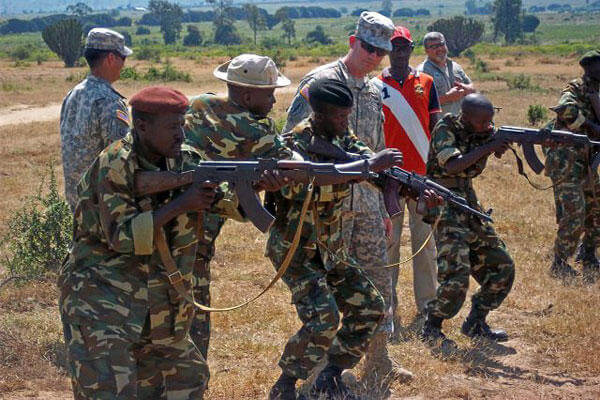The U.S. military was limited in what it could do to help rescue the kidnapped Nigerian girls by restrictions imposed by the Nigerian government, Defense Secretary Chuck Hagel's chief spokesman said Friday.
"It's not that we don't share a sense of urgency here," said Rear Adm. John Kirby, the Pentagon press secretary. "We're not going to do anything additional that's not acceptable to the Nigerian government."
Kirby confirmed that six troops from U.S. Africa Command had arrived in Abuja, the Nigerian capital, on Friday. Two more Africom troops were expected to arrive over the weekend, Kirby said, and they will work with 11 troops assigned to the U.S. Embassy on the rescue effort.
The U.S. troops will be part of a "coordination cell" working out of the U.S. Embassy with FBI and CIA agents to assist the Nigerian security services with intelligence, communications and logistics, Kirby said.
"We're not talking about U.S. military operations in Nigeria to go find these girls," Kirby said. "There's no question that we're racing against the clock here."
More than two hundred girls were abducted from their school in northeastern Nigeria on April 14, but Nigeria only accepted U.S. offers of assistance this week and then limited the military assistance to the small contingent from Africom placed at the embassy, Kirby said.
It was unclear what the U.S. team could do besides offering general advice and analysis of satellite imagery. When asked if Nigeria would accept U.S. drone reconnaissance, Kirby said "right now there's no active discussion on the use of unmanned aerial vehicles."
"Our interagency team is hitting the ground in Nigeria now, and they are going to be working with President Goodluck Jonathan's government to do everything that we possibly can to return these girls," Secretary of State John Kerry said in a statement.
An estimated 276 girls aged 16-18 were abducted last month in the town of Chibok in northeastern Borno state by armed militants from the Boko Haram terror group.
In a report issued Friday, Amnesty International charged that Nigerian commanders knew about the Boko Haram raid four hours before it was carried out but failed to do anything to protect the girls.
"The fact that Nigerian security forces knew about Boko Haram's impending raid, but failed to take the immediate action needed to stop it, will only amplify the national and international outcry at this horrific crime," Netsanet Belay, Amnesty International's Africa director, said in a statement.
The Amnesty report charged that civilians in the region warned Nigerian troops that Boko Haram fighters were on their way to the school, but the warnings were ignored.
The leader of Boko Haram, Abubakar Shekau, claimed credit for the abductions and said he planned to sell the girls at auction.
The Amnesty report was only the latest in a series of critical reports from international watchdog groups alleging that the Nigerian government's response to the abduction of the girls and to the long-standing divide between the Christian south and the Muslim north has been heavy-handed and sporadic.
"I'm tired of the same story," Nigerian Finance Minister Ngozi Okonjo Ewayala said of the Amnesty report, ABC News said in a report from Abuja.
"I'm the Minister of Finance. I can only tell you of the full commitment of this government to fight," Ewayala said.
"The government is doing everything. The government has sent additional troops. The government is doing aerial surveillance. The government is working with companies that have satellite. The government is working with the U.S.," he said.
-- Richard Sisk can be reached at richard.sisk@monster.com





























